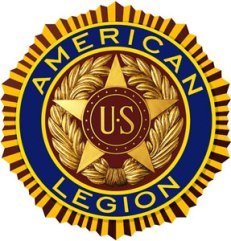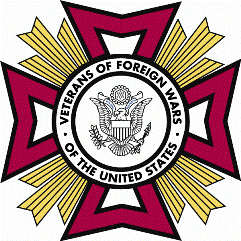November 11, 2009, - 5:19 pm
Sadness on Veterans Day as American Legion, VFW Struggle
When I was in high school, I won college scholarships from the Veterans of Foreign Wars and American Legion posts in my Detroit-area community. And as a winner, I went to their posts’ weekly or monthly dinners to read my award-winning essays. There were several things in common about all of the people there: they were all patriots, they had all been in the military (most of them having fought in wars), . . . and they were all very old.


That was two decades ago. Now, the members of the American Legion and VFW aren’t extinct, but they’re well on their way. Many of them have died out, and the current members are even older and grayer than the ones I saw two decades ago. The local VFW post, in the city where I grew up and still live–where I read my essay on “What It Means to be an American” at a potluck dinner they held– is now gone. In its place is a Walgreen’s drugstore. And, sadly, that is the path of many American Legion and VFW posts. Even the beautiful art deco logos of both organizations are a symbol of a much richer, long gone past.
Today’s younger veterans and soldiers don’t join the VFW or the American Legion. To them, it’s just a bunch of old people. And it’s not hip. That’s too bad. These organizations and their local posts were a common meeting ground for America’s masculine men, America’s patriots, and, for the most part, America’s working class. You would think these places–where man can be men–would be popular. But the contrary is happening. (The same goes for a Jewish version of these groups, the Jewish War Veterans, which is largely made up of older members.)
Unfortunately, as the American Legion and VFW groups die out and younger vets stay away, the groups are making more and more cuts to survive. It seems it’s a melancholy aim at prolonging ultimate death:
GALESBURG, IL–The future of VFW Post 2257 might hinge on the life span of its worn-out, 50-year-old boiler and attendance at weekly bingo games this winter.
Like many Veterans of Foreign Wars and American Legion posts, Post 2257 in this western Illinois city of 31,000 people is struggling to survive as older members die and younger veterans decide not to join.
Nationally, the number of VFW posts declined from 8,374 in 2007 to 7,915 as of June, spokesman Jerry Newberry says. The American Legion has 14,150 posts, down from 14,260 two years ago, spokesman John Raughter says.
More than a building is at stake here and at other troubled posts, says quartermaster Mike Lummis, who keeps the books for Post 2257. VFW and American Legion posts, both founded to fight for veterans’ benefits and promote patriotism, quickly became havens where veterans could talk with peers about experiences and problems, members say. Beyond the physical posts, both groups have long been vital presences in communities, marching proudly in parades, placing flags in cemeteries and sponsoring scholarships and Little League teams.
Some younger vets buy into the misconception “that all this organization is is a bunch of old warriors sitting around blowing smoke and in a lot of places drinking beer and telling war stories,” Lummis says. “Well, that’s not correct at all” — especially at Post 2257, where zoning rules bar alcohol sales.
“We look after our fellow vets whose lives were never the same and the ones fighting in the current wars and the wars that will come,” Lummis says.
As national membership in the VFW dips — down from a peak of 2.5 million in 1992 to 1.5 million as of June — VFW posts have to change, Newberry says. Local posts are encouraged to welcome female vets, offer family friendly programs such as child care and to make veterans who are having trouble with civilian life feel comfortable. “You have to give them a reason to join,” he says.
American Legion membership is down from a peak of 3.3 million in 1946 to 2.6 million members at the end of last year, but has 50,000 more members now than in the mid-1960s, Raughter says. It is mailing invitations to veterans, including women, using Facebook and Twitter to tell them about the benefits of belonging, he says, and sponsors youth activities such as baseball to attract vets with young families. . . .
For some generations of vets, the organizations still have a strong reputation of fighting for veterans’ benefits, guiding veterans to medical and educational aid and helping them financially.
Disabled Army veteran John Anderson, 67, says American Legion Post 1 in Reno came through for him in a “very desperate situation.” After Anderson’s wife, Mary, 71, had two major surgeries in a short span, the American Legion “paid the rent and helped us back on our feet,” he says. . . .
Still, three Virginia posts closed this year . . . .
VFW Post 5318 in Canton, Miss., has 29 members, all but two of whom served in World War II. Quartermaster Oscar Garland says it once had as many as 200 members. The post sold its building and used proceeds to erect a World War II memorial.
Albert Landsperger, state commander of South Carolina’s VFW, says it’s so poor that the Internal Revenue Service had seized its headquarters when he took over in 2007. Last year, the state had 17,515 VFW members; so far this year, it has 13,532.
“I am worried,” says Terry Daugherty, commander of VFW Post 4174 in Lehigh Acres, Fla. “I don’t know how we’ll survive when the Vietnam vets are gone.” Membership is holding steady at about 400, but only about 40 are active.
Nationally, the majority of American Legion members are Vietnam veterans, Raughter says. Newberry says the average age of VFW members is 55-60.
While some VFW and American Legion posts are flourishing, many are not. This is very sad news. These organizations are important American institutions. They’re symbols of the hard work and lives many Americans led after World War II, Vietnam, and Korea. And their members are good working-class and middle-class Americans who made our country great. Their decline, to me, is America’s decline. The end of an era.
And don’t think the two falls are not related. The members of these two groups–the VFW and the American Legion–are the salt of the earth, the salt of the American earth.
And America is losing that salt, a flavorless nation of men who no longer fraternize over pool tables and bars in dark, dilapidated rooms to trade war stories. Instead, there’s more yearning for video games and rap . . . even among our most masculine servicemen.
I hope they find a way to turn things around.
Tags: American Legion, Broke, don't want to join, dying out, end of an era, extinct, Korea, losing members, old, shrinking, Veteran's Day, veterans, Veterans of Foreign Wars, vfw, Vietnam, World War II, younger veterans


Hi Debbie!
I just found your site and also your twitter feed. Very glad I did! You’re right, this is very sad.
May I suggest one side-reason for this? Smoking bans have gone into effect all around the country, and many of our vets smoke. In the bars at VFW halls, many have felt the pinch of people who no longer come for a smoke, drink, and good friendship. Our local community was going to exempt the local military halls from the ban, but they decided not to. Hence, they are feeling the pinch like almost every bar in town these days.
I don’t want to make this a smoking issue by any means, but it would be a good idea to compare these numbers to bar closings as well- I suspect they’ll mimic each other, if not be a bit better than bar-closings due to the good fellowship to be had at the VFW hall.
AllenH on November 11, 2009 at 6:10 pm